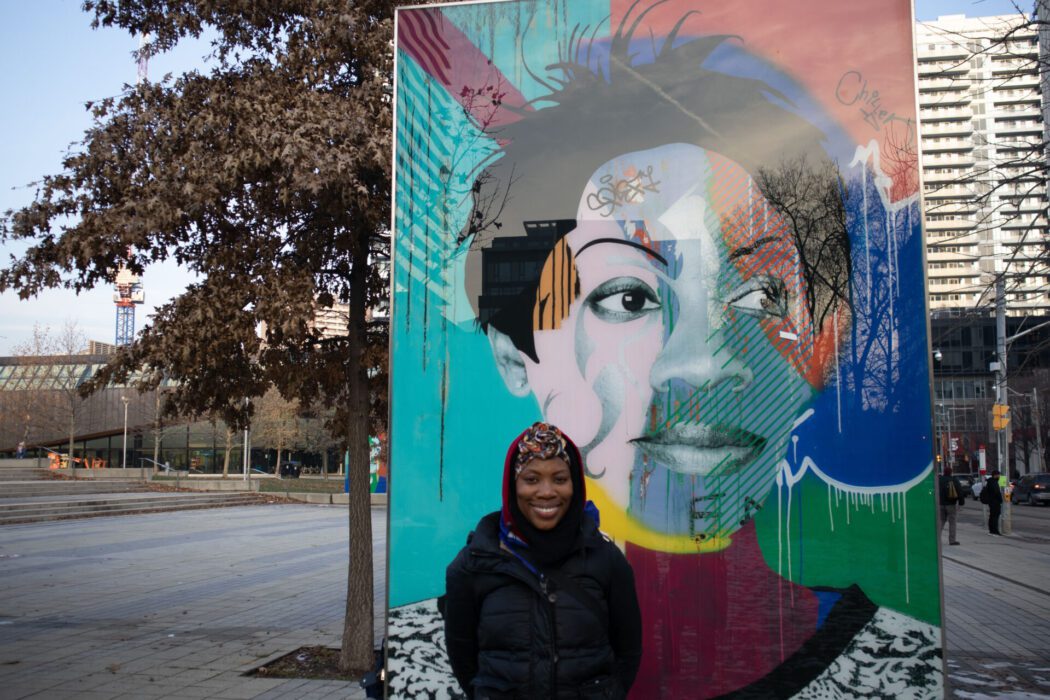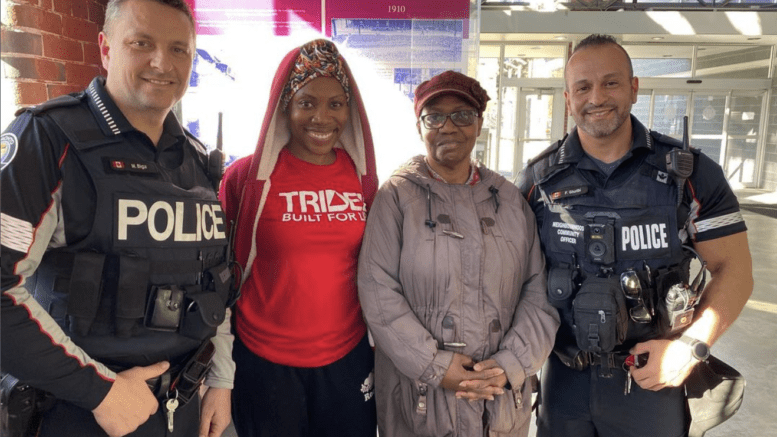Five years after the official implementation of the Toronto Police Service’s Neighbourhood Community Officer Program in Regent Park, some residents are calling for an increase in the presence of neighbourhood officers.
Others say they would like to see city policing budgets redistributed to other local support services.
“We have great neighbourhood officers now, who are really trying to help,” said Joanne Warner, a social worker, resident of Regent Park for more than 40 years and active community member.
“But, we need more neighbourhood officers that can actually take the time to get to know the community, because there’s not enough of them,” Warner said.
Once an area known for crime and gang violence, Regent Park has undergone significant gentrification in the last two decades. According to the Major Crime Indicators Report carried out each year by the TPS, it remains a neighbourhood with one of the city’s highest crime rates.

Community-based policing is a strategy focused on developing relationships with community members, generally entailing that neighbourhood officers patrol the same areas on a permanent basis. The strategy aims at building trust and mutual respect, with a focus on crime prevention over punishment.
“Before, there was no conversation; they [police] were in our community to do their job, which was to take care of the crime,” said Warner. “I think they’re getting to understand the community a lot better now … now they’re actually talking to us.”
Deany Peters, a long-time Regent Park resident and distinguished community development worker at the Regent Park Community Health Centre, said the issue closest to her heart was that of changing and transforming the culture of policing, “so that our young people have a greater sense of trust, and feel safe being policed in their own community.”
“I would like to see the people from my community want to become police officers, instead of worrying, ‘What is this police officer going to do to me?’” Peters said at an All Candidates Meeting for Ward 13 prior to the municipal election in October.
Det. Const. Mustafa Popalzai, a neighbourhood community officer in Regent Park from 2019 to May 2022, agreed that trust was key.
“We need officers to build trust, to work with the communities to prevent crime from taking place,” he said. “To prevent that 14 or 15 year-old from picking up a gun; to prevent that 16 year-old from thinking car jackings or robberies are something cool, that that’s the way they wanna make their earnings … if we haven’t got that [trust], everyone has failed.”
A recent study published in the Journal of Community Safety and Wellbeing evaluated the effectiveness of neighbourhood community officers in Toronto. It noted that “community policing has been implemented inconsistently across police jurisdictions, making it difficult to determine whether community partnerships and problem-solving are working effectively.”
“I don’t have any stats to source at the moment,” Popolzai said in a later email. He now works in the homicide department for the TPS, 51 Division. “However, of course, I have my own experience, observations and real-life stories, which have me convinced absolutely that the program works and is needed.”
‘A lack of accountability and transparency’
According to 2016 Census Data, 44.4 per cent of Regent Park residents live below Canada’s official poverty line – more than double the average rate for the city of Toronto.
With racialized communities comprising 70 per cent of the area’s population, Regent Park residents are not unanimous in the opinion that further investment into the TPS or the NCOP is what would benefit the community most.
“How can you put public funds in a system that’s broken – when its own internal investigation results in systemic, anti-Black racism?” asked Walied Khogali Ali, a board member of the Regent Park Neighbourhood Association and neighbourhood resident since 2005.
“There’s a lack of accountability and transparency,” Khogali said in a phone interview. “You cannot be pushing for more investment in a system that is actually failing people. It’s irresponsible.”
Khogali said there was a policing focus on violent crimes over other types of incidents. “We have residents who’ve had their property stolen; they basically can’t even get a response from TPS about the report or where they’re at with the investigation.”
Khogali, who is also the co-chair of the Regent Park Social Development Plan’s Community Building Table, said funds allocated towards increased policing in the area should be redirected.
“Invest in the community; invest in housing, in mental-health supports — qualified folks who can support folks in crisis,” said Khogali, “Redress the systemic causes of poverty.”

